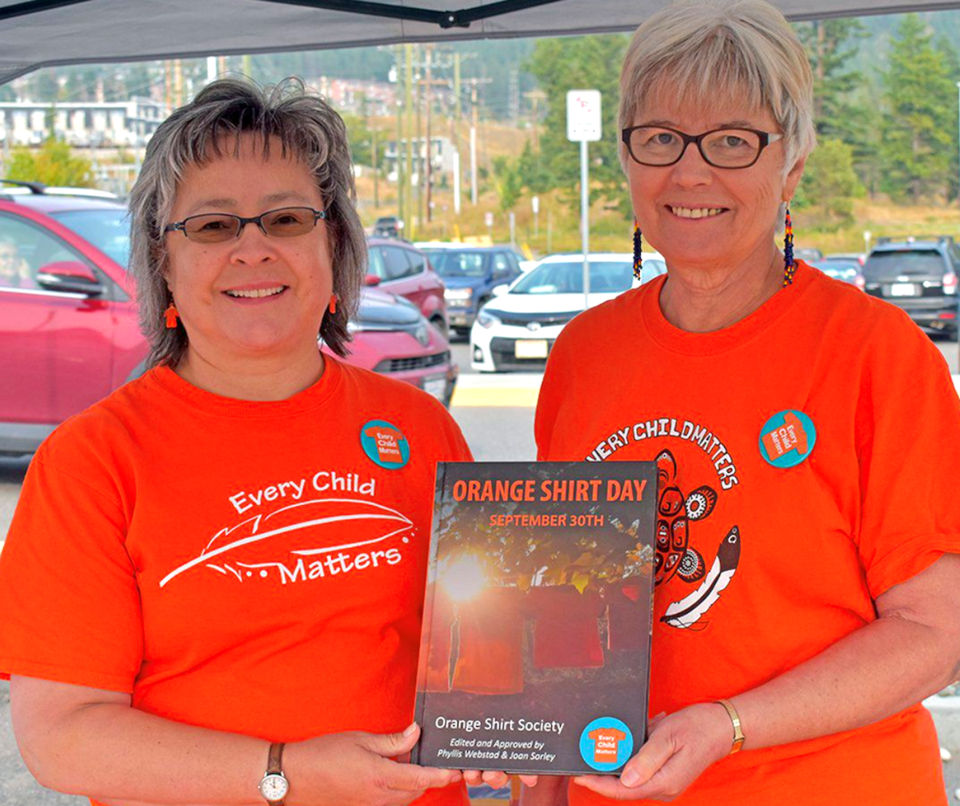There’s a new resource to learn more about Orange Shirt Day and the history of residential schools.
Joan Sorley and Phyllis Webstad, whose story about wearing an orange shirt on her first day of residential school provides the symbolic background to the movement, have written a textbook for middle-school students.
Divided into eight chapters, the book discusses the vision that inspired Orange Shirt Day, the history and effects of residential schools and the process of reconciliation.
It all started with Esketemc First Nation’s Chief Fred Robbins who longed for all people to remember and learn what happened at St. Joseph’s Mission residential school near Williams Lake, which Webstad attended.
In 2013, the Truth and Reconciliation Commission of Canada travelled to Williams Lake to participate in commemoration project events inspired by Robbins, the book noted. It was during these series of events that Webstad courageously shared the story of her orange shirt that has now become a worldwide symbol of hope and reconciliation.
Webstad was just six years old when at her first day of residential school in 1973 her new shiny orange shirt, bought by her granny, was taken away.
“It was pee-your-pants terror,” Webstad said she tells students when asked how she felt on her first day at St. Joseph’s Mission.
“If you can imagine being at the mall or the grocery store with your family and all of a sudden you don’t know where they are and that instant terror of being by yourself and not knowing what to do — that’s what it was like going to the residential school and realizing I wouldn’t be able to go home.”
Various months and days for an annual day of events about the devastating impacts residential schools had on Indigenous people were explored.
In the end, seven years ago they chose September 30.
“I overheard an elder say that September was crying month and I knew then that we had chosen the right time of year and the right day for Orange Shirt Day,” Webstad, said noting September was the time of year when Indigenous children were taken from their communities, families and homes.
In order to achieve reconciliation every person must make the effort to listen to the painful truths of what took place in residential schools as well as the inter-generational impacts, the Orange Shirt Day book states.
“Life can be understood backwards but must be lived forward and I always remind myself of that,” Webstad said, adding she will forever be on her journey of healing.
Most Orange Shirt Day events this year are being held virtually due to COVID-19.
Rebecca Dyok is a Local Journalism Initiative reporter with the Williams Lake Tribune, where this story first appeared.



